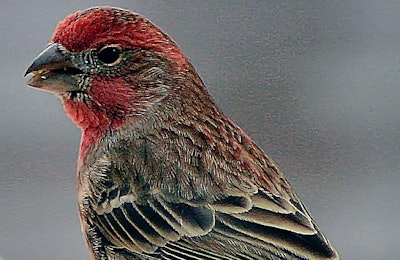
U. S. Customs and Border Protection (CPB) deserves a pat on the back for its recent work to protect the U.S. poultry industry.
Threats of bird diseases, such as avian influenza, are something to be highly concerned about, and the federal agency proved on December 8 that it was well aware of those threats.
CPB agriculture specialists at John F. Kennedy International Airport in New York on that day stopped an arriving passenger on a flight from Georgetown, Guyana. During the course of the inspection, customs workers discovered 70 live finches concealed within hair rollers in a black duffel bag.
“CBP agriculture specialists are the first line of defense to prevent the introduction of animal diseases that have the potential to cause significant damage to the nation’s agricultural economy,” Troy Miller, CPB director of field operations at the New York field office, stated in a press release issued by the agency.
Customs, in its release, indicated it is taking extra precautions in order to avoid a major disease event such as the 2015 outbreak of highly pathogenic avian influenza in the United States, which the agency noted resulted in the culling of about 50 million commercial turkeys and chickens and $850 million in damages.
The finches were seized, placed under quarantine and turned over to U.S. Department of Agriculture’s Veterinary Services agency.
Smuggled to sing?
So why were these finches being smuggled?
According to a New York Times report, it is believed that the smugglers were bringing the birds into the United States so the finches could be part of underground singing contests. In those contests, gamblers apparently put the birds against each other and place bets on their chirping skills. It has been estimated that a winning male finch with a good track record can sell for up to $10,000.
Customs told the Times that so far in 2018, about 200 birds have been smuggled from South America to the U.S.


















